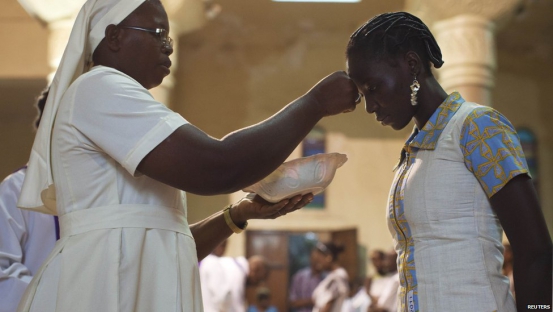
Millions of Christians are preparing to celebrate Lent - a time of year that many non-believers may associate with fasting or abstinence.
But there is a lot more to the religious observance than giving up something, as it is regarded as a period of spiritual preparation to grow closer to God in the run-up to Easter.
Certain days are excluded from Lent, and many Christian denominations observe the period in different ways.
Here is everything you need to know about Lent - from the meaning behind it to the traditions that many worshippers follow.
What is Lent?
Lent takes place every year in the 40 days leading up to Easter, and is treated as a period of reflection and a time for fasting from food and festivities.
It symbolises the days which lead up to Jesus' crucifixion and subsequent resurrection, when Christ spent 40 days and nights alone in the Judaean Desert being tempted by Satan.
When does Lent start?
For Western churches Lent begins every year on Ash Wednesday.
This year it begins on March 1.
The date varies from year to year, starting in either late February or early March.
However, for Eastern Orthodox churches it begins on Clean Monday (February 27 this year), two days before Western churches.
When does Lent end?
There's no easy answer to this.
For Western churches the 40-day period of Lent ends on Holy Saturday (April 15), the day before Easter.
But the liturgical season of Lent ends two days earlier on Holy Thursday (April 13).
For Eastern churches it ends on April 7, the Friday before Palm Sunday.
What days are excluded from Lent?
Lent lasts 46 days, but Sundays are not included in the overall count.
That means it is observed for 40 days in the run-up to Easter, and is often a time when instead of fasting people will give up certain food and drink such as chocolate and alcohol.
The six Sundays are not counted because each one is seen as a "mini-Easter" celebrating Jesus' victory over sin and death.
What do people give up for Lent?
Lent is traditionally marked with fasting, abstinence and prayer.
Most believers tend to give up something until Lent ends to "purify" their bodies.
For children it could be something such as chocolate, sweets, television or certain toys, while adults tend to give up things such as alcohol, coffee or smoking.
Some households may give up meat, eggs and dairy products.
Many believers use the time to volunteer at a charity or donate money to a good cause.
What is Ash Wednesday?
Held the day after Shrove Tuesday , also known as Pancake Day or Mardi Gras (Fat Tuesday), Ash Wednesday is considered a day to cleanse the soul before Lent begins.
Ashes are used to mark a cross on the foreheads of churchgoers to symbolise repentance for sin.
Palm crosses from the last Palm Sunday are burned and the ash is used to mark parishioners. It is also said to be a reminder that death comes to everyone.
 The Standard Group Plc is a multi-media organization with investments in media
platforms spanning newspaper print
operations, television, radio broadcasting, digital and online services. The
Standard Group is recognized as a
leading multi-media house in Kenya with a key influence in matters of national and
international interest.
The Standard Group Plc is a multi-media organization with investments in media
platforms spanning newspaper print
operations, television, radio broadcasting, digital and online services. The
Standard Group is recognized as a
leading multi-media house in Kenya with a key influence in matters of national and
international interest.



